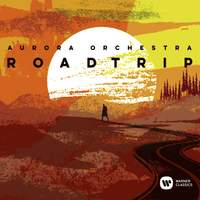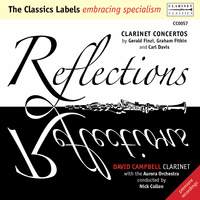Interview,
A road-trip with the Aurora Orchestra
 The Aurora Orchestra is a relatively young ensemble, founded just ten years ago. In that time it has built up a reputation for innovative, original and daring programming - mostly in live concerts rather than on disc.
The Aurora Orchestra is a relatively young ensemble, founded just ten years ago. In that time it has built up a reputation for innovative, original and daring programming - mostly in live concerts rather than on disc.
January saw a change of direction for them, though, with the release on Warner Classics of Road Trip - the first of a projected series of discs that have the feeling almost of a concert, or of a concept album, about them. Road Trip “takes listeners on a journey across America” with a wide and eclectic mix of American music from the twentieth century, exploring different aspects of the musical soul of the United States: works by Ives, Copland and Adams sit cheek-by-jowl with Paul Simon and arrangements of folk-songs by the leading young American composer Nico Muhly.
I spoke to the orchestra's conductor and artistic director Nicholas Collon about the project, and about the unusual approach it seems to take compared to most current releases.
Where did the idea to put together this eclectic range of Americana – ranging from Aaron Copland to Paul Simon to folk songs – originally come from?
A big feature of Aurora’s programming over the past few years has been playing around with a consciously eclectic vein of repertoire, that can cover all periods, styles and genres. Since the group was founded, we have often played the two major works on this disc; Copland’s Appalachian Spring and Adams’ Chamber Symphony, and the other music that intertwines around them attempts to take the listener on a sort of journey through time and space, along an imaginary American road.
The CD release was preceded by two live concerts in London, which offered a slightly different range of music, for example including a work by the late Elliott Carter; how did you decide which pieces would be featured on the disc?
With all these things, it’s trying to get the perfect blend of ingredients in the melting pot. When you take an omnivorous approach to a programme, not every piece will appeal to everyone, because people don’t necessarily have the same tastes. But we were excited about the idea that someone who might pick up the disc because they like the beautiful soundscapes of Copland could be blown away by the visceral energy of the Adams. So choosing the exact repertoire was in the end no different from coming up with a concert programme, except you have to imagine people listening in their car, or on their phone!
Why did you go for the new (and often conspicuously “modern”) arrangements of the folk-songs sung by Dawn Landes, rather than a more traditionally “folk”-like sound?
We’ve worked a lot with American composer Nico Muhly before, and he was the first person we spoke to to make some arrangements of traditional songs. More than that, he immediately got the concept of what we were after, and was instrumental in making some great suggestions of what these songs could be and who could sing them. I love these arrangements - they’re simple yet beautiful, and feel vaguely timeless in the hands of Dawn and Sam [Amidon, on vocals and guitar]. I wouldn’t say they’re ‘modern,’ but nor do they attempt to create a sort of authentic folk sound world - we’re not a folk band so that’s probably a good thing!
The Adams Chamber Symphony features a prominent part for the synthesiser, particularly in the last movement – giving pride of place to an instrument that has yet really to make it into the classical concert hall. Do you think electronic instruments should be welcomed more into the classical world?
The synthesiser features in quite a lot of Adams’s music, even in the big orchestral scores - it just happens to be so prominent here largely because it’s within a small ensemble. It’s an interesting sound, and a great addition to the piece. Of course I’m very up for electronic instruments appearing in the concert hall - lots of composers are using electronic instruments and sounds in interesting ways, although this isn’t a new thing of course!
The concept of an imaginative “journey” across/into a country is a rich one, even if “road trips” themselves are generally an American idea – might there be more such musical explorations to come?
We’ve got two more discs coming out in the next couple of years as part of our current deal with Warner Classics. I imagine that both will have some concept or theme underpinning them, although not a journey to another country! We like the idea of a disc having some kind of narrative and flavour of a concert, which is quite unusual for an orchestral CD. It allows for some interesting and unexpected repertoire to appear together, and be presented in an unusual way.
Road Trip was released last month on Warner Classics.
Available Formats: MP3, FLAC
Also featuring the Aurora Orchestra
David Campbell stars as the soloist in this exploration of recent concertante works for the clarinet. Alongside Finzi's timeless lyricism are lesser-known concertos by film composer Carl Davis and Graham Fitkin.
Available Formats: MP3, FLAC




